The National Association of Street Vendors of India (NASVI) is an organization that advocates for the rights and welfare of street vendors across India. Its history reflects the evolution of street vendors’ movements in India, their struggles, and their successes in securing legal and social recognition.
Origins and Early Years
Formation and Early Advocacy (1998-2004): NASVI was established in 1998, born out of the urgency to address the issues faced by street vendors, who were often marginalized and harassed by local authorities. The organization was formed as a coalition of street vendors’ groups from different parts of the country, aiming to provide a unified voice for vendors at the national level. In its early years, NASVI focused on advocacy and lobbying for the rights of street vendors, emphasizing the need for legal recognition and protection against eviction and harassment.
NASVI is an organization working for the protection of the livelihood rights of thousands of street vendors across the country. Beginning as a Network in 1998, NASVI was registered in 2003 under the Societies registration Act of 1860.
The main objective behind establishing NASVI was to bring together the street vendor organizations in India so as to collectively struggle for macro-level changes which had become imminent to support the livelihood of around 10 million vendors which stand severely threatened due to outdated laws and changing policies, practices and attitudes of the powers that be.
NASVI is a national federation of street vendor organizations. It is a coalition of Trade Unions, Community Based Organizations (CBOs), Non Government Organizations (NGOs) and professionals.
Objectives:
- To bring together street vendor organizations of India so as to collectively struggle for macro-level changes, which had become imminent to support the livelihood of millions of street vendors
- To strengthen street vendor organizations and support them in their endeavors to ensure the livelihood of street vendors. The objective is to build a strong grass-root movement of street vendors of India.
- To strengthen street vendor organizations to look for long-lasting and sustainable solution to the problems faced by street vendors.
- To organize International, National and State level conferences in order to bring the attention of Policy Makers, Planners and Administrators towards the street vendors.
- To facilitate and support the dialogues/interfaces with all decision makers and stake holders in finding solutions for the problems of the street vendors apart from dharnas, processions, struggles.
- To Collect and make available information about good practices, initiatives, policies and laws, methods of struggle, court judgments etc related to street vending and street vendors. It must be mentioned that when NASVI was formed there was limited information about street vendor organizations in India. NASVI began by gathering information about these organizations through different ways ranging from media reports, writing to other organizations and to making visits crisis crossing the country to get in touch with these organizations.
- To maintain continuous communication with and between street vendor organization and also with other stakeholders.
- To play role of a watchdog to protect the interest of street vendors.
Legal Milestones and Policy Advocacy
National Policy on Urban Street Vendors (2004): One of the significant early achievements of NASVI was its role in the formulation and adoption of the National Policy on Urban Street Vendors in 2004. This policy aimed to provide a supportive environment for street vendors and recognize their contribution to the urban economy. NASVI’s persistent advocacy efforts were crucial in pushing for this policy, which laid the groundwork for future legal protections.Continued Struggles and Legal Battles (2004-2014): Despite the national policy, street vendors continued to face challenges, including evictions and lack of access to basic amenities. NASVI engaged in continuous advocacy, legal battles, and public campaigns to ensure the implementation of the policy at the state and local levels. We also worked towards building the capacity of street vendor groups, providing them with training and resources to
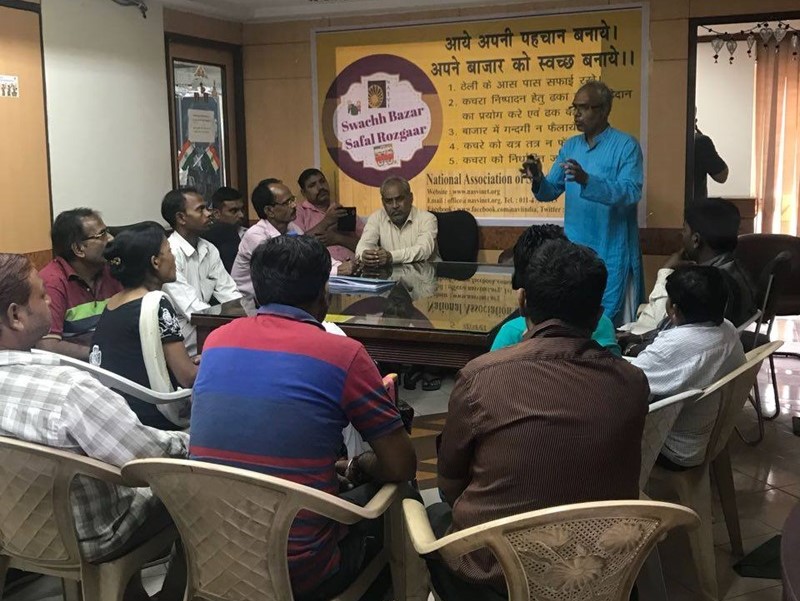

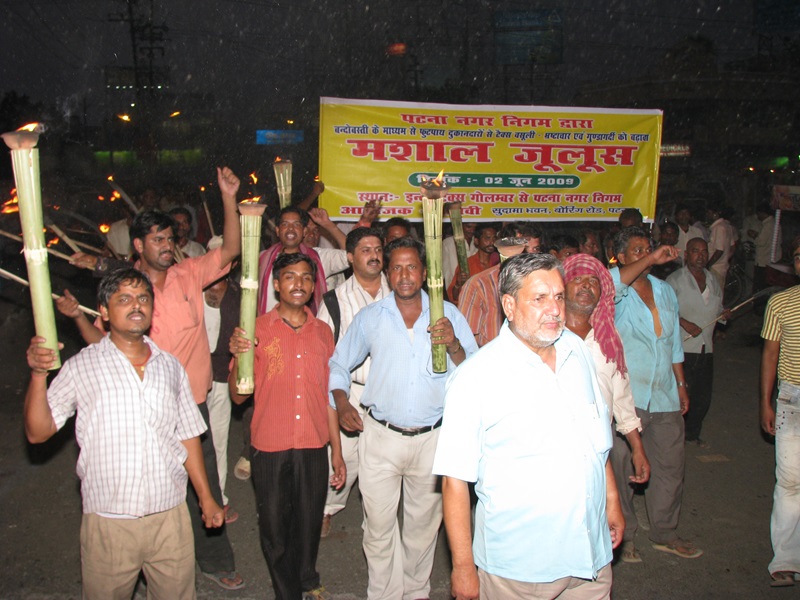
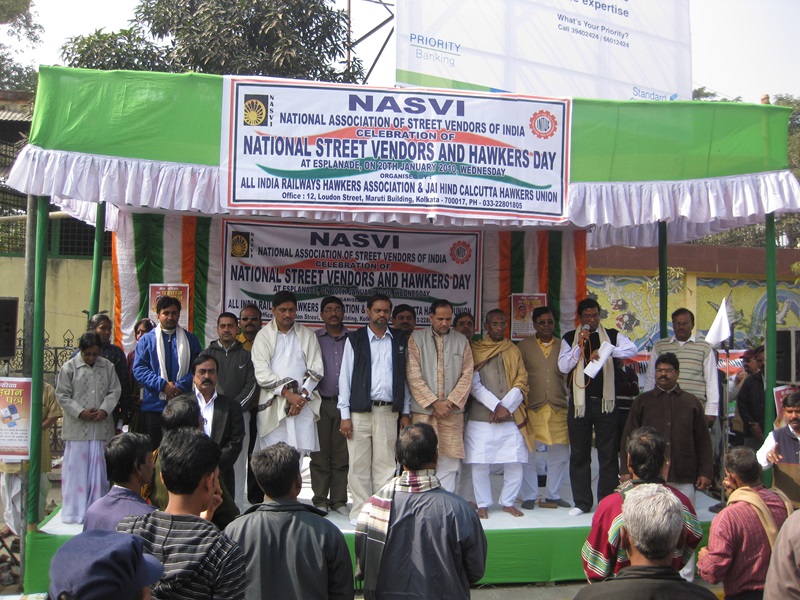

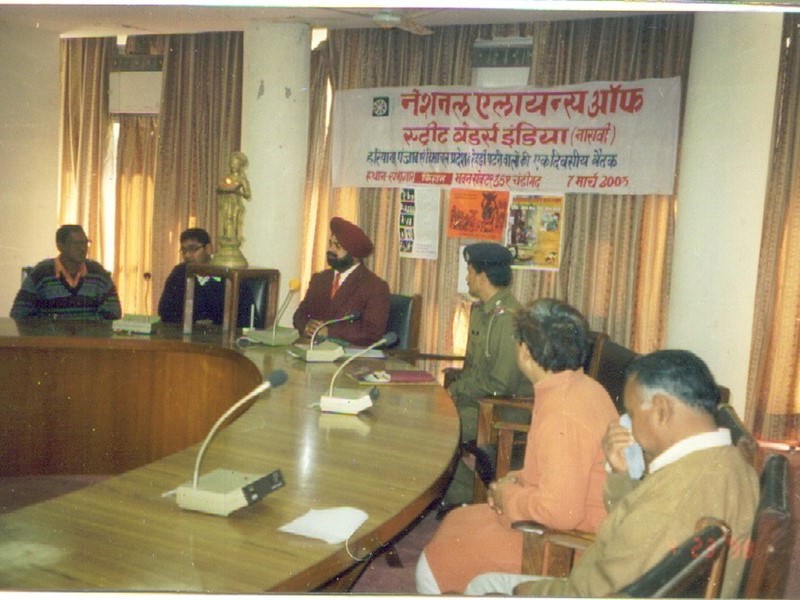
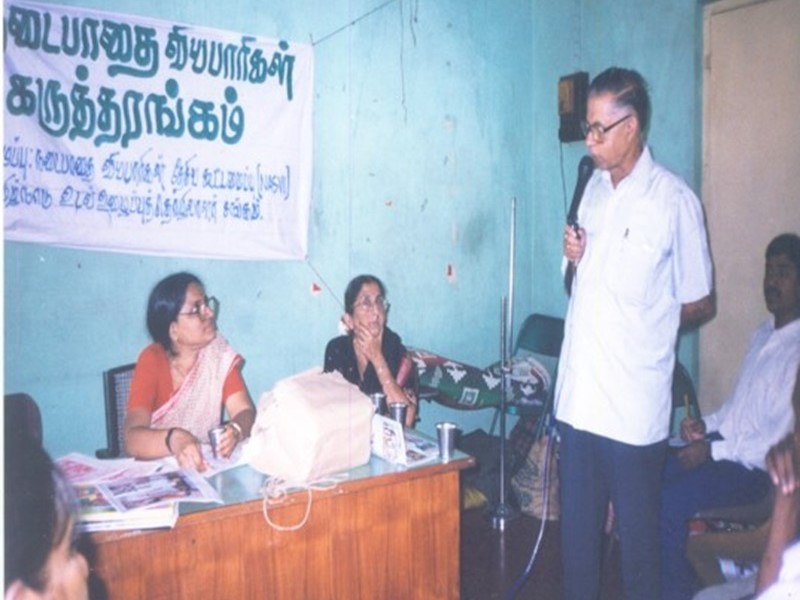
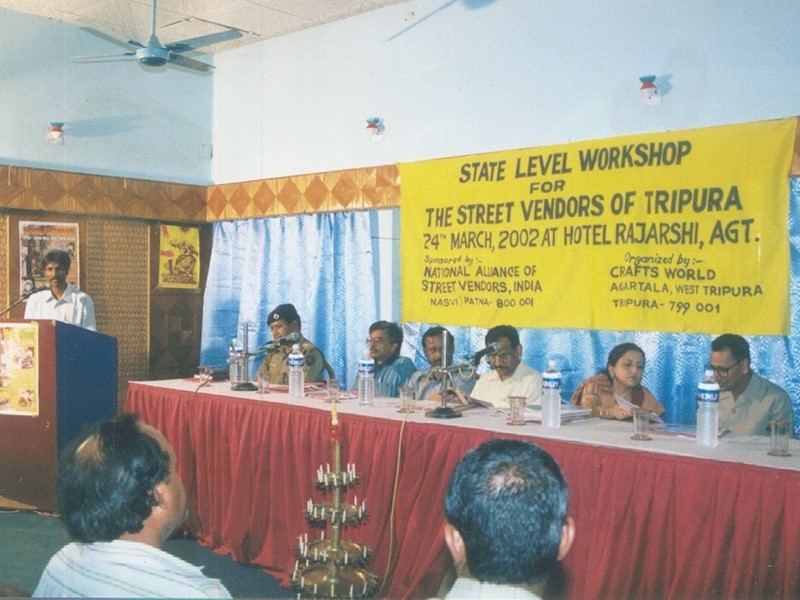






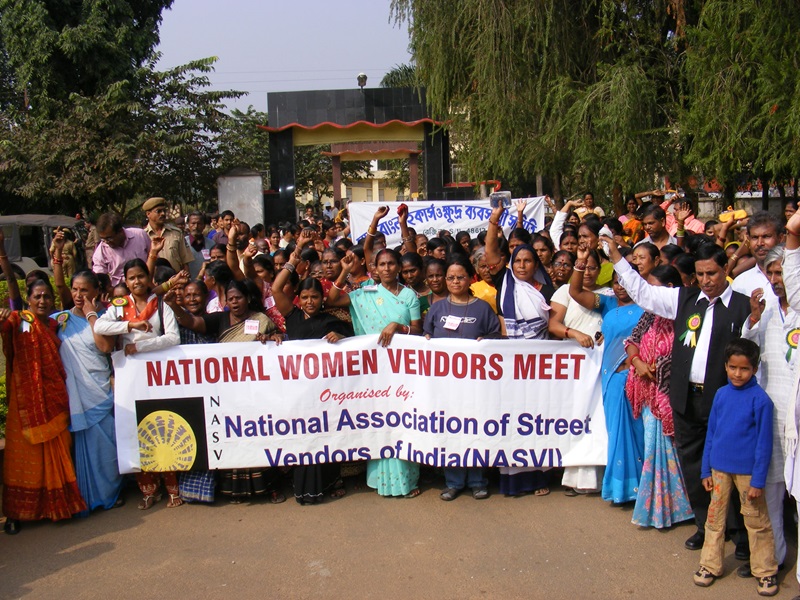
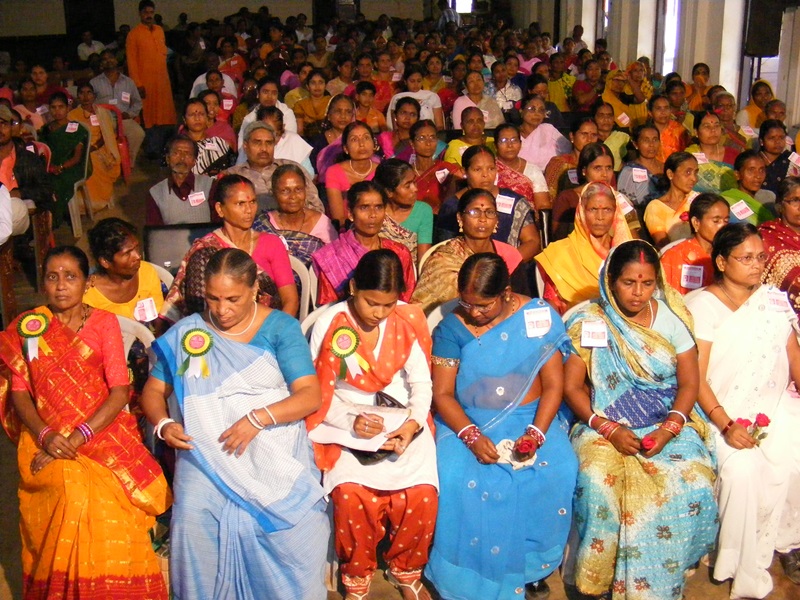
Major Legislative Victory
The Street Vendors (Protection of Livelihood and Regulation of Street Vending) Act, 2014: A landmark achievement in NASVI’s history came with the enactment of the Street Vendors (Protection of Livelihood and Regulation of Street Vending) Act in 2014. This act provided legal protection to street vendors, recognizing their right to earn a livelihood through vending and outlining a framework for regulation and management of street vending. NASVI played a pivotal role in the drafting and advocacy process, mobilizing support from various stakeholders, including policymakers, civil society organizations, and the vendors themselves.
Post-2014 Developments
Implementation and Challenges (2014-Present): Following the passage of the 2014 Act, NASVI’s focus shifted towards ensuring effective implementation of the law across India. This involved working with state governments and local authorities to form Town Vending Committees (TVCs), which are responsible for the registration and regulation of street vendors. NASVI also continued to address ongoing issues such as access to social security, financial inclusion, and protection against harassment.
COVID-19 Pandemic Response: The COVID-19 pandemic posed significant challenges for street vendors, many of whom lost their livelihoods due to lockdowns and restrictions. NASVI played a crucial role in advocating for relief measures for street vendors, including financial assistance, access to credit, and inclusion in social protection schemes. We also provided direct support through distribution of food and essentials during the pandemic.
Current Focus and Future Directions
Empowerment and Advocacy: Today, NASVI continues its work to empower street vendors through capacity building, legal aid, and advocacy. We are involved in various initiatives to promote the inclusion of street vendors in urban planning processes and ensure their access to essential services and facilities.
Sustainable Livelihoods and Urban Inclusion: NASVI’s current initiatives focus on promoting sustainable livelihoods for street vendors and ensuring their integration into the urban economy. This includes efforts to enhance vendor skills, improve market infrastructure, and advocate for policies that support inclusive urban development.
Through persistent advocacy, legal battles, and capacity-building efforts, NASVI has significantly contributed to improving the lives of street vendors and securing their rightful place in the urban economy. As it continues to address new
Since its formation, NASVI is committed to struggle for creating a supportive environment for the street vendors to carry out their legitimate vending. All the initiatives of NASVI are focused to secure the livelihood of street vendors through policy interventions, changes in political- legal environment, dialogues with policy makers, administrators and planners, organizing state-level, national and international conferences, organizing struggles/processions/demonstrations/dharnas, supporting in crisis, providing legal aids, capacity building of street vendor organizations, financial services, collecting and disseminating information about issues concerning street vendors, sensitizing society about the issues of street vendors and so on.

